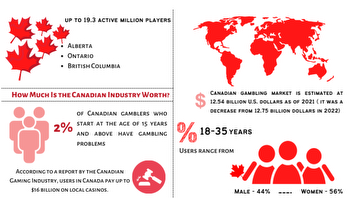How Kenya is plotting to steal the shine from gambling craze

A 15 per cent monthly tax on betting revenue and fines of up to Sh20 million for violations including failure to pay winners are among hefty fees proposed in a Bill to regulate gambling.
The landscape of online gambling in Kenya is on the brink of significant transformation, with the impending passage of the Gambling Control Bill 2023, poised to replace the current Betting, Control, and Licensing Board (BCLB).
While many registered betting sites have flourished, offering an array of enticing games and bonuses, the industry has not been without its challenges.
The dark side of unregulated gambling has cast a shadow over the lives of many, leading to a growing need for stringent controls.
For individuals such as Mr Peter Kairo, a 34-year-old florist trader from Naivasha Town, the allure of online gambling took a toll on his life, plunging him into massive debt and mental health issues.
“Gambling has ruined my life but there’s nothing I can do to stop it,” he said. “I was strongly against gambling. I wasn’t interested at all until the pandemic hit and with my active social life on hold and my shop closed down, I took up an online gaming habit to keep myself occupied but that quickly spiraled out of control leaving me in massive debt that I’m still struggling to pay.”
Kairo's story resonates with countless Kenyans who have grappled with the adverse effects of unbridled gambling.
The Gambling Control Bill 2023, if passed, aims to address these issues by introducing tough measures to protect gamblers. One of the key aspects of the Bill is its focus on tackling illegal gambling.
The proposed legislation imposes hefty fines of up to Sh20 million and a maximum jail term of 20 years for betting companies that exploit gamblers and fail to promptly pay winning antes. This signals a significant shift toward accountability within the industry.
To safeguard gamblers, the Bill introduces a 15 per cent gambling tax on gross gambling revenue, payable every 20th day of the following month.
Additionally, a monthly gambling levy, not exceeding one percent of monthly gambling revenue, is slated to re-shape the financial landscape of the gambling industry in Kenya.
This dual taxation approach aims to generate revenue for the State while curbing unscrupulous practices.
A notable provision in the Bill requires foreign bookmakers to establish a call centre in Kenya, enhancing consumer protection and ensuring a swift response to customer concerns.
The planned law forces foreign-based gambling operators to provide audited books of accounts for the preceding year, adding a layer of transparency to their financial deals.
“A foreign-based gambling operator who provides online gambling services in Kenya without- a license commits an offence and, shall upon conviction be liable to a fine not exceeding Sh2 million or face imprisonment for a term not exceeding two years, or to both,” states the Bill.
In a bid to weed out unlicensed gambling activities, landlords who permit their premises to be used for such purposes may face fines of up to Sh1 million or imprisonment for a term not exceeding one year, or both.
Similarly, individuals conducting any form of gambling without a valid license could incur fines up to Sh3 million or imprisonment for a term not exceeding three years, or both, upon conviction.
Subsequent offenses could result in fines of up to Sh5 million or imprisonment for a term not exceeding five years, or both.
The Bill places a strong emphasis on protecting children from the potential harms of gambling.
Any person found betting with a child or involving a child in licensed betting premises may face fines of up to Sh1 million or jail for a term not exceeding one year, or both. This underscores the commitment to creating a responsible gambling environment that prioritises the welfare of vulnerable populations.
“The objective and purpose of this Act are to provide a framework for regulation and control of gambling activities, authorise gambling activities and prohibit the rest as unlawful gambling and promote the development of responsible gambling,” states the Bill.
Beyond these measures, the Bill envisions the establishment of the Gambling Regulatory Authority, headed by a Director-General. This regulatory body will play a pivotal role in developing standards and norms for various gambling activities, issuing licenses, and formulating policies to ensure responsible gambling practices. The authority will also monitor addictive or compulsive gambling, conduct research, and coordinate surveys to assess the industry's impact.



































